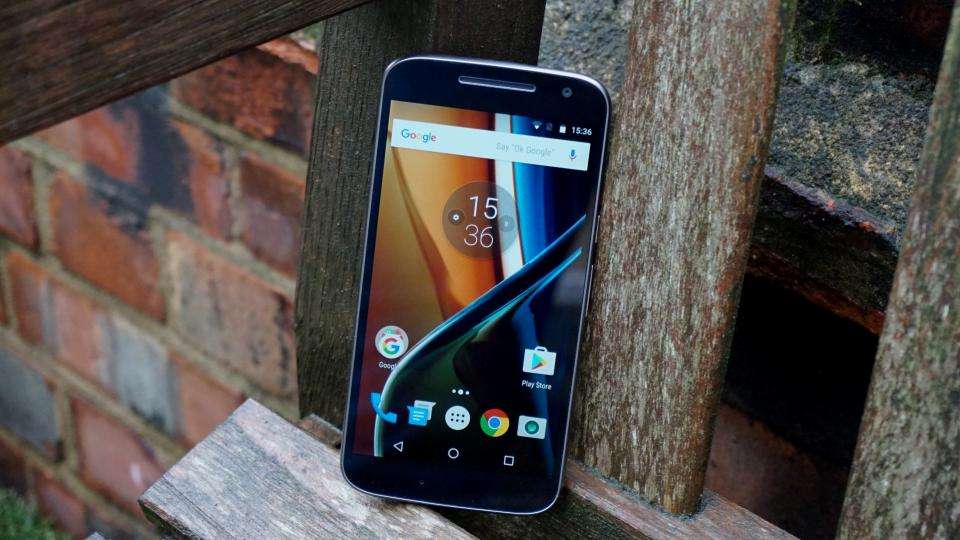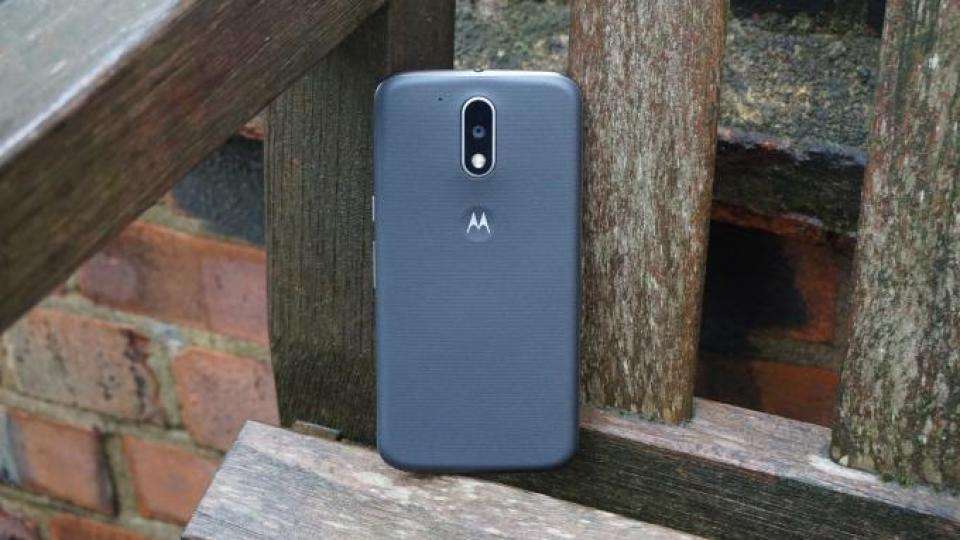Less than a year on, the Moto G4 is still an excellent phone, it follows on from its successful predecessor, the Moto G 3rd Gen. There are many budget smartphones, including the Samsung Galaxy J5 and the Vodafone Smart Prime 7 , to name just two that have tried to dethrone the Moto G, as the best budget smartphone.

At just £159 from Amazon and even cheaper for £140 on Argos , the SIM-free Moto G4 is so good, that it even gives mid-range smartphones a run for their money, even Motorola's own Moto X Play . The G4 has an octa-core 1.5GHz Qualcomm Snapdragon 617 processor, 2GB of RAM and offers exactly the same amount of processing power for almost half the price.
At its price, it wipes the floor in comparison to its budget rivals, by even providing a noticeable upgrade for current 3rd Gen Moto G owners.
Moto G4 2016 review: Performance
The difference in speed is palpable, as apps not only open much quicker, but the whole Android operating system feels incredibly slick. It showed in our Geekbench 3 results, too, as the Moto G4 scored 717 in the single core test and a massive 3,107 in the multicore test. Give or take a few points, that's roughly the same scores produced by the HTC One A9 , which costs £420 SIM-free , and the Samsung Galaxy A3 2016 , which costs £215 , which is incredible for such a cheap smartphone.

It does face some competition from the newly released Vodafone Smart Ultra 7 , however, as this handset's octa-core MediaTek MT6755M processor managed 784 in Geekbench 3's single core test and 2,927 in the multicore test. This puts it more or less on par with the Moto G4, which is impressive considering the Ultra 7 costs just £135 on Vodafone's Pay as You Go service. That's more or less the only smartphone that can compete with the Moto G4, though, as other sub-£170 smartphones such as the 3rd Gen Moto G, Wileyfox Swift , and the Obi Worldphone MV1 only managed scores of around 500 and 1,500 respectively , giving the Moto G4 a clear lead in terms of overall speed.

It's beautiful to use on a day-to-day basis and it's even a pretty capable gaming machine, too. While its GFX Bench GL offscreen Manhattan 3.0 score of 412 frames (around 6.6fps) can't match the faster frame rates I've seen from phones like the Nexus 5X (around £215 admittedly ), I still managed to play a decent game of Hearthstone on the Moto G4 without too much stutter. Simpler 2D games like Threes! also worked like a dream, so it should be more than capable of keeping you entertained when you need to while away a few minutes on public transport.
Web browsing has also been significantly improved since the 3rd Gen Moto G, as images, videos and adverts were quick to load, and scrolling was pretty seamless once pages had loaded fully. The Guardian's media-rich homepage could still be a bit jerky in places, particularly when scrolling up and down at speed, but on the whole it provided a much more pleasant experience than its 3rd Gen predecessor, despite the Moto G4's Peacekeeper score of 632 being lower than the 3rd Gen's result of 731.
Moto G4 2016 review: Battery life
All this power doesn't come at the cost of battery life, either, as the Moto G4's large 3,000mAh battery lasted an impressive 13h 39m in our continuous video playback test with the screen set to our usual brightness of 170cd/m2. That's fantastic for a budget smartphone and a full two hours more than the 3rd Gen Moto G, and 30 minutes longer than the Moto X Play. It also storms past the Vodafone Smart Ultra 7 as well, as this only managed 9h 55m in the same conditions.
Even better, the Moto G4 supports Motorola's TurboPower quick charging technology, which Motorola claims will give you six hours of power in just 15 minutes. The only downside is that it doesn't come with a TurboPower charger in the box, so you'll have to buy one separately for around £25 (from Motorola ) to take advantage of it.
Moto G4 2016 review: Design & Moto Maker options
So far, so good, but the one thing that might put people off the Moto G4 is that it's much bigger than its predecessors and bigger than any other budget handset out there. Motorola has taken the odd decision to move from a 5in display to a 5.5in display, taking the Moto G4 into phablet territory. Measuring 153x77x7.9mm, compared to 142x72x11.6mm for the Moto G 3rd Gen, this might be a step too far for those already hankering for the more compact designs of a few years ago.
It's really quite a handful as a result, and the move to a flatter back isn't quite as comfy as the 3rd Gen model's curved, albeit fatter dimensions. As a result, you might want to get it in your hand before you buy, but having moved from a 4.7in phone to a 5.5in phone myself over the last year, it really doesn't take long to get used to.
^ The 3rd Gen Moto G (left) is significantly smaller than the Moto G4 (right)
I'm not a big fan of the Moto G4's general design, as its subtle crosshatch pattern on the rear isn't nearly as elegant or stylish as the grooved, textured panel on the 3rd Gen Moto G. It's also lost the 3rd Gen's waterproofing protection, but its water repellent coating should still provide adequate protection from splashes or a light rain shower.
Those who like to customise their handset using Motorola's Moto Maker service might also be a little disappointed, I feel, as the options this year are decidedly less fun than its predecessors. It doesn't cost any more to change the colour of the back panel, but the shades on offer are rather more muted than the bright yellows and searing lime of yesteryear. The choice of metallic accents around the camera are also rather uninspiring, but considering it's free, you might as well personalise it as much as you can to get the look you want.
^ The Moto G4 (left) doesn't have as many eye-catching Moto Maker options as the 3rd Gen Moto G (right), either
The only thing you do have to pay extra for on Moto Maker is if you want to upgrade the Moto G4's storage to 32GB. This costs an extra £30, but when the G4 comes with a microSD slot that takes cards up to 128GB anyway, this seems like a bit of a waste of money. Continues on Page 2

